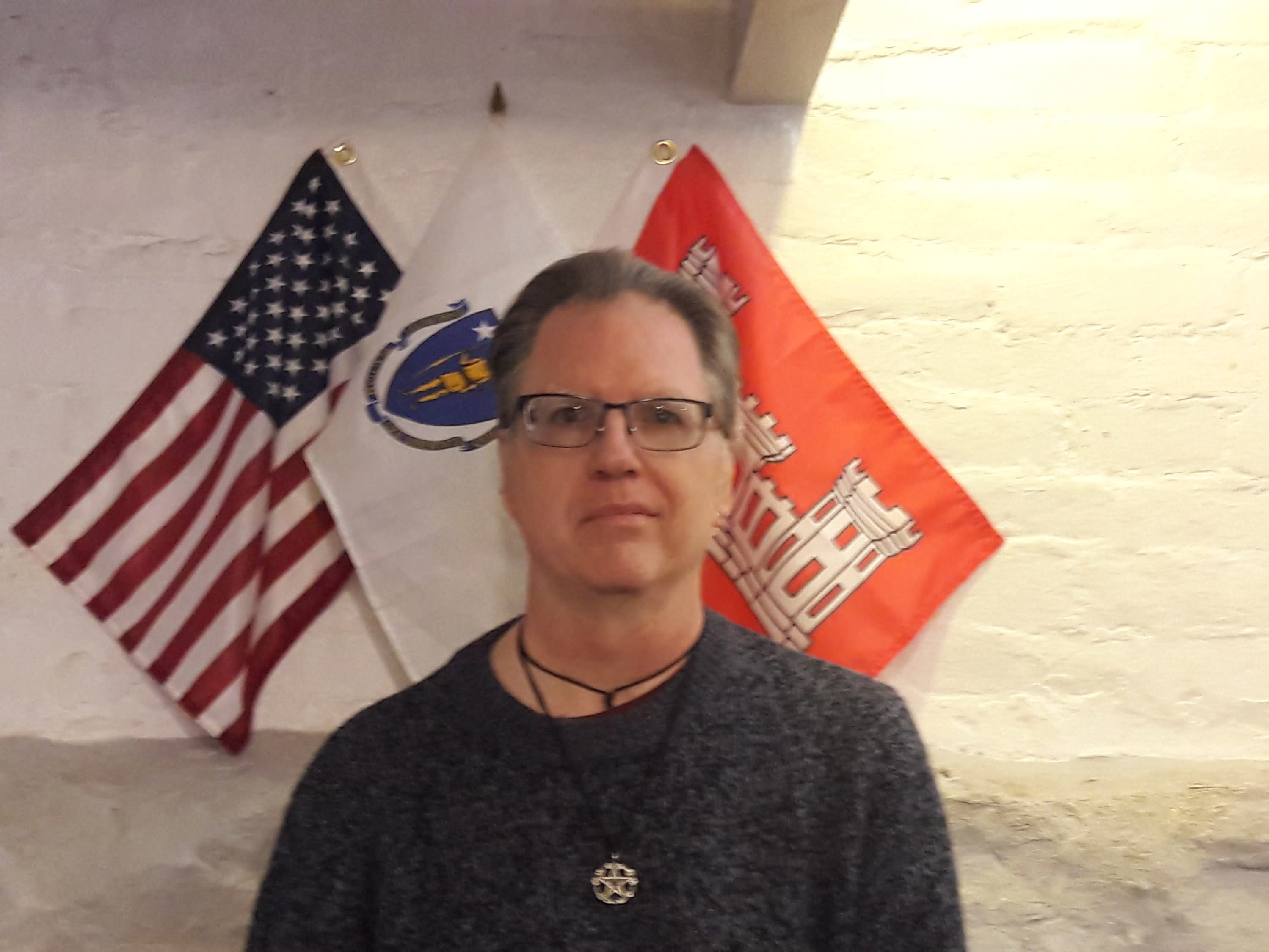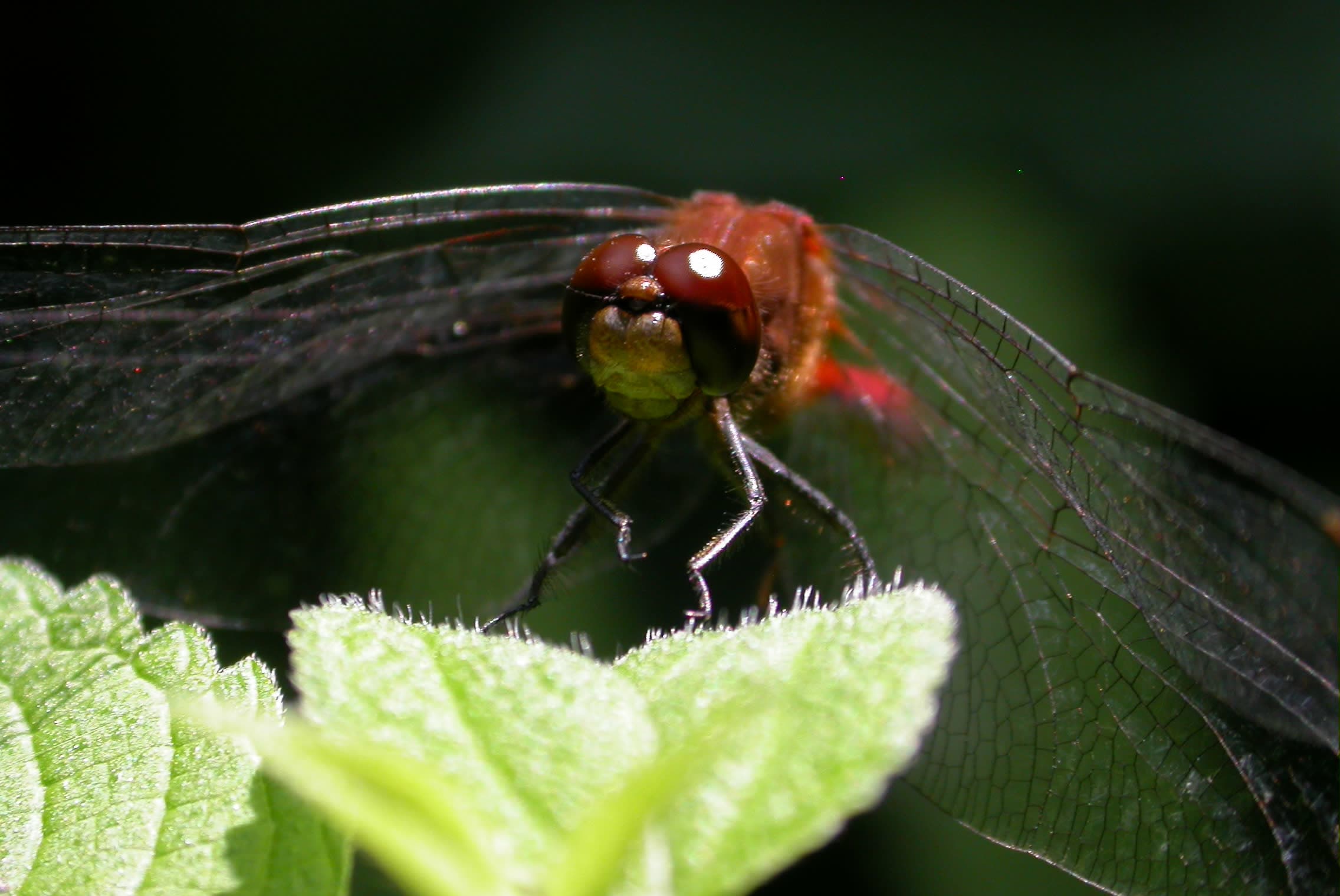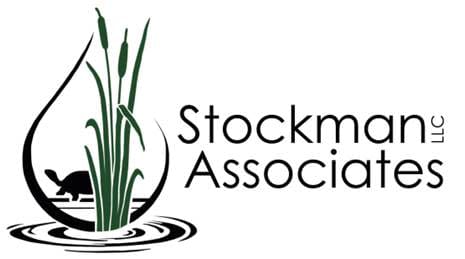New England Chapter

A.Z. Arietta
Bryan Bayer
Bryan manages the Planning & Compliance Department within the Environmental Service Group at C&S Engineers, Inc. He is a Professional Wetland Scientist as certified by the Society of Wetland Scientists, and a Certified Ecologist by the Ecological Society of America with 25 years of experience. Mr. Bayer manages large and complex environmental projects. His areas of expertise include environmental and ecological assessments including wetland and waterway delineations, ecological community mapping, and rare and endangered species habitat assessments. In addition, Bryan provides services related to Section 404/401 Clean Water Act permits including wetland and stream mitigation planning and design.
Bryan has authored hundreds of environmental documents consistent with the National Environmental Policy Act and New York State Environmental Quality Review Act. He has authored environmental impact statements, environmental assessments and categorical exclusion documents, and assisted in development of such documents for numerous federal and state agencies.
Timothy Bishop
As a wetland ecologist, Timothy Bishop is currently serving the Town of Fairfield as the Director of the Conservation Department charged with managing the Town's natural resources.
With over 22 years of experience in the environmental consulting industry, Timothy Bishop has a broad range of experience managing environmental investigation and remediation projects throughout New York, New Jersey and Connecticut in both the residential and commercial sectors. Aside from his current duties in natural resources, Mr. Bishop has performed and managed environmental site assessments, soil, groundwater and air quality investigations, remedial system design and monitoring and remediation, including soil excavation and in-situ techniques. He also conducted wetlands delineations and HBM surveys/asbestos inspections (NY and CT).
Mr. Bishop’s service to his Town has also resulted in his appointment and election to various natural resource Commissions/Boards related to Conservation and Inland Wetlands and is currently serving as Vice Chairman of the Town of Ridgefield Inland Wetlands Board. In 2025, was appointed to an 8-year term by the Speaker of the House to Connecticut's Council on Environmental Quality. He also volunteers additional time on the Certification Review Board for the Academy of Board Certified Environmental Professionals. In addition to volunteering, holds certification as a Professional Wetland Scientist, Certified Ecologist and Certified Environmental Professional.


Juli Crane
Ms. Crane is a Principal Wetland Specialist with the Lake County Stormwater Management Commission (SMC) in Lake County, Illinois, where she reviews permit applications for wetland impacts, helps administers Lake County’s Wetland Restoration Fund, and manages various SMC grants. Before joining the SMC, she worked as a consultant primarily in the Intermountain West and Midwest. With a B.S. in Wildlife and Range Resources and an M.S. in Fisheries and Wildlife, Juli has over 30 years (yikes!) of experience playing with water, dirt (soil, for you purists), and plants… and forging paper trails. She has an alphabet soup of professional creds that get trotted out as needed, including Professional Wetland Scientist (PWS), Certified Floodplain Manager (CFM), and Certified Ecological Restoration Professional (CERP).
Karina Dailey
Karina Dailey is a Restoration Ecologist for Vermont Natural Resources Council (VNRC). In this position, she is responsible for running VNRC’s dam removal program and contributing her scientific knowledge and expertise to policy issues around the conservation and restoration of Vermont’s waters. Prior to joining VNRC, Karina worked as a Senior Ecologist at Trudell Consulting Engineers (TCE) in Williston, overseeing the ecology department and managing all-natural resource-related projects and providing expert testimony. Formerly, Dailey was a Project Manager for the Winooski Natural Resources Conservation District and a Restoration Ecologist for the US Fish and Wildlife Service and Intervale Nursery. Before moving to Vermont, she taught environmental science and worked in conservation in the Greater Yellowstone area in Wyoming.
Karina holds a Masters in Environmental Science from Antioch University New England, and a B.A. in Environmental Studies and Sociology from St. Lawrence University. She is a Certified Wetland Scientist and Wildlife Biologist. Karina lives with her family in Jericho and enjoys every opportunity for outdoor exploration.
Paul Davis
Dr. Davis is an Ecologist and Ecological Restoration Specialist with a forty-year career in professional consulting. He obtained his PhD in Biological Sciences from the University of Rhode Island with a research emphasis in marine ecosystems, also receiving Masters Degrees in Zoology and Environmental Policy. He maintains professional certifications as a Professional Wetland Scientist, Certified Professional Soil Scientist and Certified Ecological Restoration Practitioner which are central to his practice and experience with wetland and aquatic resources, ecological restoration, soil science, water quality, mitigation design and permitting. At GZA GeoEnvironmental, Inc., based in Massachusetts, Dr. Davis was Principal of Ecological Services 2009-2019 and Technical Practice Lead for natural resource and ecological services, networking and helping to develop the skills of over 60 professional scientists. Over the course of his career, he managed and implemented numerous large-scale interdisciplinary projects encompassing a wide diversity of wetland and aquatic resource affected projects, and their permitting processes at the local, state and federal levels; including highway, rail, airport, utility, retail development, facility construction, recreation, natural resource management, and site remediation projects. He has served as an expert witness in numerous judicial, arbitration, and regulatory enforcement cases. He is also active with the Society of Ecological Restoration (SER) since 2017 and has served on the board of certification, reviewing new applicants for certification. He helped develop several teaching modules for the 2020 SER Principles and Standards for Ecological Restoration. He has authored >60 professional publications and presentations over the course of his career.
Kenneth Deshais
Lauren Healey
Lauren attended the University of Massachusetts Amherst where she received a degree in natural resource conservation. Upon graduating she worked for the Parker River NWR controlling invasive species and assisting with pilot marsh restoration work. Her love of backpacking then led her out to Oregon where she worked for the Natural Resources Conservation Service (NRCS) and later the US Fish and Wildlife Service (USFWS) leading wetland restoration projects. Today, she is a regional coordinator for the National Wetland Inventory Team and helps ensure high quality wetland data across the US.
Maureen Herald
I perform wetland and riverfront delineations, vernal pool assessments, wildlife habitat evaluations, wetland restoration and mitigation projects. I provide construction overview, stormwater and erosion control monitoring and soil evaluations. I represent homeowners, engineers and developers at conservation commission meetings, Department of Environmental Protection (DEP) site walks and appeals, provide expert testimony in the DEP adjudicatory hearings, enforcement and litigation issues.
I file federal, state and local permits to the appropriate regulatory authority. The federal permits include U.S. Army Corps of Engineers (GP - Self-Verification Notification Form, Pre-Construction Notification, and Individual Permits) and Environmental Protection Agency (NPDES - Construction General Permits, Stormwater Pollution Prevention Plans and Stormwater Construction Site Inspections). The state permits include the Massachusetts Environmental Policy Act (Environmental Notification Forms & Environmental Impacts Reports), Massachusetts Endangered Species Act (Information Requests, Pre-filing Consultations & Conservation & Management Permits) and Chapter 91 licenses. The state/local permits include (ANRADs, RDAs, NOIs, Insignificant Changes, Amendments, Certificate of Compliances, Extensions, Appeals, Adjudicatory Proceedings, Enforcement & Litigation Issues).
Catherine Koning
Catherine Owen Koning is Professor of Environmental Science at Franklin Pierce University in Rindge, NH. She received her B.A. in Biology and Environmental Studies from Bowdoin College, her M.S. in Ecology from the University of California at Davis, and her Ph.D. in Environmental Studies from the University of Wisconsin. Dr. Koning teaches environmental science, wetland ecology, water resources and sustainability. Her current research focuses on water quality management in lakes and wetlands. She has recently published a book about wetlands, Wading Right In: Discovering the Nature of Wetlands (University of Chicago Press) and has recently co-authored an on-line open-access education textbook for undergraduates, entitled Saving Biodiversity in a time of Climate Change, available at https://ecologyandevolution.org/SAVING_BIODIVERSITY.pdf On the Franklin Pierce campus, she helped initiate the Institute for Climate Action, and she serves on the Board of the Monadnock Sustainability Hub; both organizations seek to find and implement solutions to the climate crisis. Dr. Koning lives in Keene NH with her husband Rob, child Lynx and 1 dog and 2 cats.
Micaela Leandro

Christian Marks Ph.D.
Stacy Minihane
Stacy is a Professional Wetland Scientist (PWS) and Principal at Beals and Thomas, Inc. (B+T). She leads B+T’s Planning and Environmental Services Discipline and has extensive experience in local, state, and federal land use and environmental permitting processes, wetland science and environmental research, and she is adept at the preparation and oversight of complex reports and permitting documentation.
Stacy actively reviews and comments on proposed regulatory changes, and has coordinated extensively with various local, state, and federal regulatory agencies about such changes, including involvement in technical advisory committees. She is engaged in various regulatory and resiliency initiatives, including previously serving on MassDEP’s Stormwater Management Updates Technical Advisory Committee on behalf of the Association of Massachusetts Wetland Scientists. Stacy is currently serving as the President of the Association of Massachusetts Wetland Scientists (AMWS) as well as on the board of the Environmental Business Council of New England. She is also an MVP Certified Provider.
Stacy routinely provides project peer review services for various Conservation Commissions in Massachusetts and has also acted as an on-call Consulting Agent in several municipalities. She is a former member of her community’s Conservation Commission and is engaged with her community's Open Space and Recreation Plan Committee.


Heidi Ricci
E. Heidi Ricci is the Director of Policy and Advocacy at Mass Audubon, with decades of experience in environmental policy and community engagement. She co-authored Losing Ground: Nature's Value in a Changing Climate and created tools and programs to assist communities in building climate resilience through nature-based solutions including wetland restoration and low-impact development. Ms. Ricci holds a B.S. degree in Biology from Tufts and an M.S. degree from Antioch University New England. She serves on the Nashua River Wild & Scenic Stewardship Council and on the Boards of the Citizen Planner Training Collaborative, Massachusetts Association of Conservation Commissions, and the Massachusetts Rivers Alliance. She has also served on numerous state advisory committees and working groups. She has received several awards including an Environmental Merit Award from EPA Region I.
Joseph Schubauer-Berigan Ph.D.
Matthew Schweisberg
Matt is a retired federal wetlands ecologist and wildlife biologist. He is the Principal at his firm, Wetland Strategies and Solutions, LLC (WSS), where he provides policy, regulatory and technical advice and assistance for clients seeking to navigate a wide range of regulatory and non-regulatory issues related to wetlands and other aquatic resources. He works throughout the U.S.
He spent nearly 33 years with the U.S. Environmental Protection Agency at both its Headquarters office and New England Region office in Boston, Massachusetts. Prior to retiring from federal service, he served concurrently as Chief of the New England Region’s Wetlands Protection Program, as Senior Mediator with the Region’s Alternative Dispute Resolution Program, and as the Agency’s representative on the International Joint Commission’s International St. Croix River Watershed Board. During his entire tenure with the New England Region, Matt also served as the Region's Senior Wetlands Ecologist.
He is a nationally recognized expert in the federal Clean Water Act’s Section 404 Program. Matt served on national work groups developing federal guidance and regulations on Clean Water Act jurisdiction, and agriculture and enforcement issues. He also testified before federal grand juries and served several times as an expert witness on wetland regulatory and technical matters at both federal and state levels.
Matt has extensive experience with coastal and inland wetlands and other aquatic resource issues for major projects involving transportation, energy, agriculture, commercial and port development, and hazardous waste cleanup. He has taught courses in wetland regulation, restoration, wetland ecology, and wetland identification and delineation for EPA, the Army Corps of Engineers, the New England states, Northeastern University, and many other organizations.
Jeffrey Shamas
Special Areas of expertise: Wetlands Function Values, Delineation, Mitigation, Permitting, Ecology & Landscape Ecology, Expert Witness, Regulatory, Soils, Stream Restoration.

Michael Sheehan
Happily Retired
BS Biology, MS Entomology, New England Regional Soil Science Certificate. Professional Wetland Scientist (Emeritus). Formerly, I was active as an applied biologist, wetland scientist, & practicing soil scientist.

SWS New England Chapter
Jessica Townsend

